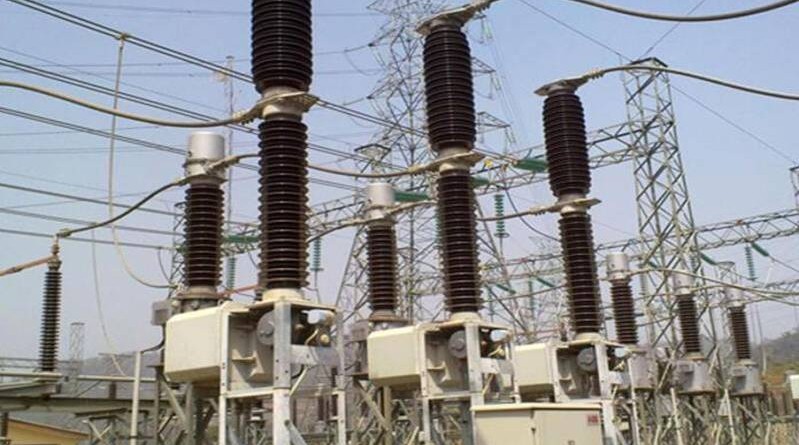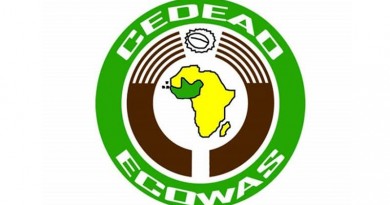Fresh Tussle over Right to Sell Electricity in Ariaria Market
Shortly after the federal government concluded its privatisation of successor distribution networks created from the unbundling of defunct Power Holding Company of Nigeria (PHCN), and handed over the Enugu electricity distribution company (Disco) to its preferred bidder – Interstate Electrics, a court case challenging its action over two business units of the network – Ariaria and Aba, emerged.
Basically, the legal action instituted by Geometrics Aba Power Limited, contested the government’s handover of the two business units to Interstate, despite a reported existing pact between it and the government, in which it was agreed that Geometrics would build a 188 megawatts (MW) capacity gas turbine power plant at the Osisioma area of Abia state, and distributes its output exclusively to Ariaria and Aba business units for a specified period – about 25 years.
The project was scheduled to come in two phases, with the first phase been a 141MW plant and the next, a 47MW plant. The 141MW has reportedly been completed by Geometric with a 27 kilometres gas pipeline connected to the plant from Owaza near Imo River, and more than 100 kilometres of 33kV and 11kV electricity lines.
Accordingly, the agreement signed between the Bureau of Public Enterprises (BPE) for the Nigerian authorities and Geometrics in 2005 or thereabout, specified that the arrangement upon which Geometrics sourced for and obtained funds for its construction of the power plant would remain enforceable or operational despite the government’s planned privatisation program.
It chiefly carved out Ariaria and Aba business units of the Enugu Disco from the its entire coverage areas which included all the five eastern states of the country, and handed them over to Geometrics to invest in distribution infrastructure and supply electricity to consumers under it, perhaps at a tariff agreed with the country’s power sector regulator – the Nigerian Electricity Regulatory Commission (NERC).
Based on this, Geometrics from a 2013 visit to its power plant in Osisioma, and the distribution areas by THISDAY, reportedly invested in the upgrade and replacement of some distribution facilities in the two business areas.
Its chairman and former power minister, Prof. Barth Nnaji, told THISDAY then that Aba had just only three distribution sub-stations that belonged to the PHCN when Geometrics began its revamp of the networks, and that these could not sustain adequate power distribution within the area.
Nnaji, explained then that the firm began to build four new 2X15MVA substations in the area to bring the total number to seven, in addition to a 60MVA substation built at the power station. He also stated that a load audit was conducted by Geometrics to discover that over time, the exclusive networks would be needing 156MW of electricity at peak demand levels.
He also stated that tariff to be charged by the independent power plant will not be different from whatever the country’s regulator approved for other on-grid power plant, adding that the investment economics of the plant had factored in the need to maintain such tariff framework.
But somehow, the government sidestepped the 2005 agreement and included both areas in the network it handed over to Interstate, thus necessitating Geometrics’ legal action against it.
A long legal contest ensued
So, for years – between 2013 and 2016, both Geometrics and Interstate engaged in a court case that sought to determine who owned the right to distribute electricity in the areas. Their legal warfare continued with the NERC failing to find a solution.
The regulatory commission though initiated some regulatory mediatory steps, and at a time attempted to conduct a public hearing on the issue, perhaps with the intention of democratically deciding the best solution to the quagmire apparently created by the government when it at first failed to adhere to or amend the exclusive distribution service agreements it reportedly signed with Geometrics.
However, after the government of Dr. Goodluck Jonathan, which snubbed the reported agreement with Geometrics handed over power to President Muhammadu Buhari, and the legal action still unresolved, the Vice President, Prof. Yemi Osinbajo, made a fresh drive to end the issue and invited both parties to settle out of court.
Arguing on the strength of Nigerians needing the power that Geometrics would generate from its plant in Osisioma, had Osinbajo, requested that both parties fashion out a win-win solution to the issue. He also asked them to sign a fresh pact within which they will cooperate and make the most of their investments.
A spanner in the works
But before the two parties completed or even begun implementing their negotiation, the government through its Rural Electrification Agency (REA) opted to build a 9.5MW embedded power plant to generate and distribute electricity to the Ariaria Market, despite the existing contention.
Through its Energising Economies Programme (EEP), the REA decided to build power systems that would power major markets in the country, basically to ensure they remain productive. It chose to start with Sabon Gari Market in Kano; Ariaria in Abia; Somolu Printing Community and Sura Shopping Complex, both in Lagos.
For Ariaria, which Geometrics and Enugu Disco still contested who owned the right to distribute electricity to, the government further made its situation difficult when the NERC issued new generation and distribution licences to Ariaria Independent Energy Distribution Network Limited (AIEDN).
AIEDN, according to Enugu Disco, is registered as a private firm with the Corporate Affairs Commission (CAC), and reportedly represented the interests of REA and other private financiers in a special purpose vehicle (SPV) format.
Despite the NERC’s claim of public interest as the reasons for its decision to give new operational licenses on the disputed distribution cluster area, Enugu Disco and Geometrics have said it was unfair and wrong to have done that.
The Disco told THISDAY that NERC’s issuance of licences to AIEDN was despite an existing court order against the construction of the power plant.
The Head of Communications at Enugu Disco, Mr. Emeka Eze, indicated NERC was unfair in its management of the situation, adding that such unfair regulatory practice was a threat to investment in the power sector.
“The truth of the matter is that the area is our franchise area, and the construction that is being carried out, we had petitioned the NERC and we also got an injunction for them to stop work. NERC was a party to this, NERC was duly served. We are surprised, and at the same time disappointed at the development,” Eze said.
He explained that: “The matter is already in court and we will rely on the court to do the right thing. The regulator we ran to to do the right thing ignored us and went ahead to do this.”
“It is strange that NERC had to issue this license despite the pendency of a suit by EEDC on which it (NERC) was made a party and duly served,” he added.
Eze, said before the NERC’s re-award of the license, the Discos had initiated a negotiation with the REA on the premise that the government still maintained 40 per cent shares in its business, but discovered from its search at the CAC that AIEDN was a private enterprise with convoluted shareholdings comprising of several companies and shareholders.
“In fact, what had been assumed was a government initiative by REA metamorphosed into a purely private sector business detailing the names of a chain of companies and shareholders. Furthermore, EEDC is not aware of any transparent procurement process by REA that assigned the project, which was ostensibly conceptualised and funded by the government, to private developers,” Eze, stated.
Similarly, a reliable source in Geometrics who preferred not to be mentioned, told THISDAY that a meeting of all parties was called up by NERC when the development first came up and they complained alongside Enugu Disco, but REA reportedly failed to show up at the meeting.
The source further explained that the NERC therefore promised to reconvene the meeting with the assurance that REA will be part of it. That meeting, he noted didn’t take place before the NERC went ahead to issue the fresh licenses.
He expressed regrets that the regulatory commission could take such position on a matter that has remained disputed for years now and thus needed a fine closure.
NERC’s 2012 regulation called to question
Following from this, Enugu Disco has maintained its rights to distribute electricity to Ariaria has been violated by the new licensee. It also noted that by its license to AIEDN, NERC had sidestepped its 2012 regulation on independent electricity distribution network.
The 2012 regulations provided the standard rules for the issuance of distribution licenses to qualified operators and licensees to engage in electricity distribution, independent of the distribution system operated by Discos.
NERC in that regulation stated that an independent distributor may be an isolated off-grid rural Independent Electricity Distribution Network (IEDN); isolated off-grid urban IEDN; or embedded IEDN.
It further stated that it would grant a license to an IEDN it is satisfied that there is no existing distribution system within the geographical area to be served by the proposed independent distribution system and the infrastructure of an existing distribution licensee is unable to meet the demand of customers in the area.
The commission also said in the 2012 document that an IEDN must undertake in writing that the facility of the existing distribution licensee will not be used in its operations; ensure that there are no parallel overhead lines to the existing facility; ensure the safety of equipment, workers and the public; as well as ensure that its minimum distribution capacity shall be 5000kW.
However, Eze said Enugu Disco had made investments in Ariaria’s distribution networks, thus accusing NERC of being unfair to it.
“AIEDN Limited encroached and trespassed on EEDC’s distribution licensed coverage area by illegally constructing distribution lines without a license nor the authorisation of EEDC.
“This act is in clear contravention of the regulatory provision that no company can set up a distribution network within a franchise area of a distribution company where there is already an existing and active distribution facility in the area.”
“Furthermore, there are various conditions to be fulfilled for an intending applicant under the NERC Independent Electricity Distribution Network Regulations, 2012 and the NERC Regulations for Mini-Grids, 2016. These conditions however do not appear to have been fulfilled by the applicants,” he added.
He also said the NERC ignored an existing court order, adding: “Further to that, EEDC instituted legal proceedings at the Federal High Court of Nigeria, Umuahia Judicial Division seeking declaratory and injunctive reliefs as well as damages for trespass.
“Part of the interlocutory applications filed was a motion ex-parte, praying for an order of interim injunction restraining the trespassers from constructing or continuing the construction of an independent electricity distribution network within EEDC’s electricity distribution licensed area. This prayer was granted by the presiding judge, D.E. Osiagor on the 24th of May 2018 to maintain the status quo.
“It becomes expedient to reiterate that it is an illegality and indeed an unlawful act for any organisation to attempt to embark on the construction of an independent electricity distribution network within EEDC’s licensed coverage area in contravention of extant regulatory provisions.”
By Chineme okafor, Thisdaylive.com




